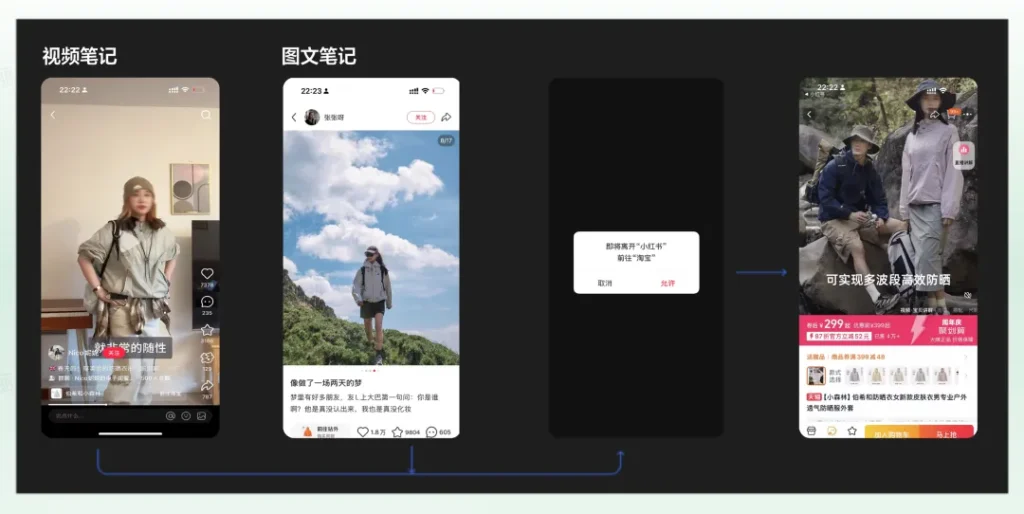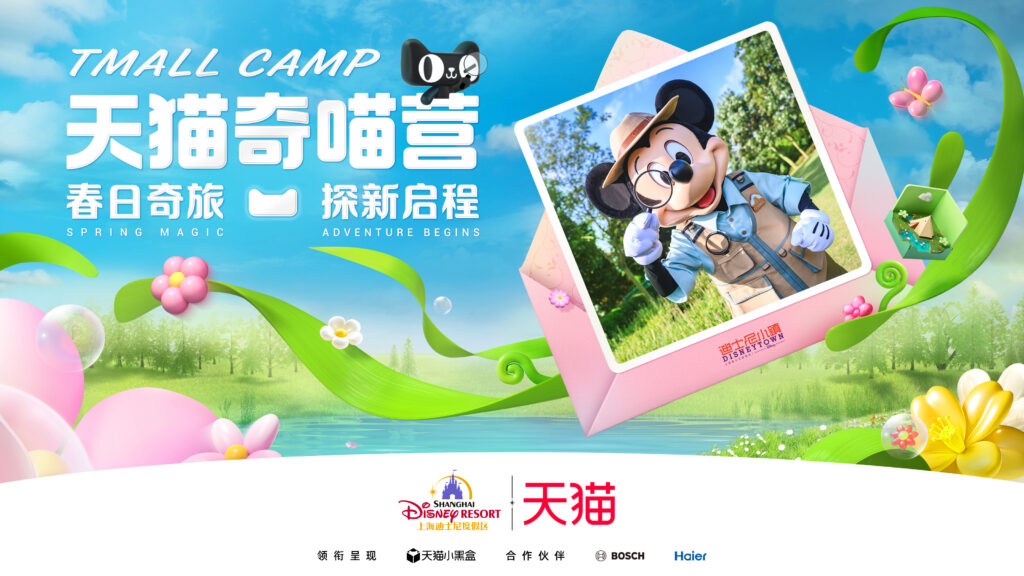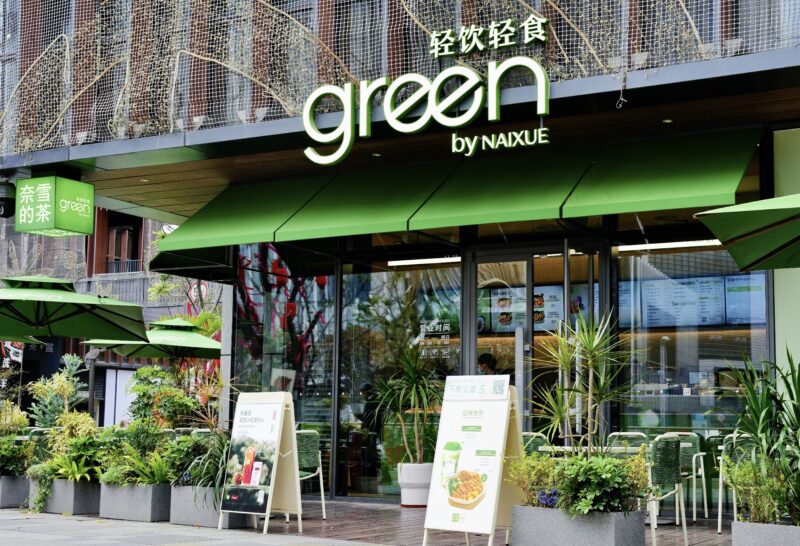The 618 Shopping Festival is starting earlier than ever with both Tmall from Alibaba and rival JD.com launching their sales event on 13 May, a week earlier than last year’s 20 May date. Ahead of the 618 Shopping Festival this year, Taobao and Tmall Group from Alibaba, and the lifestyle platform Rednote announced that they’ll be teaming up for a new “Red Cat” initiative (红猫计划), a portmanteau of the “Red” from Rednote and “Cat” from Tmall (天猫, lit. celestial cat). Under this initiative, not only can Taobao and Tmall merchants advertise directly on the lifestyle platform and bring in traffic, but they will also be able to access an unprecedented amount of user data from Rednote.


Under the new scheme, a new “ad link” feature will be added to notes on Rednote this 618. The direct conversion from content marketing to sales on the e-commerce platforms will complete the chain of “seeding (种草) – purchase” that many social commerce platforms have been trying to achieve, including both parties in the “Red Cat” initiative. This enviable “closed circuit” might give not only the Alibaba platforms but also Rednote an edge this 618 Festival, and could become a standard strategy in the future of e-commerce in China.
May the circle be unbroken
Other than the seamless cross-platform shopping experience for users and customers, Rednote, for the first time this 618, has made all analytics available to merchants. The data includes views, comments, likes, collects, shares and follows. In turn, Tmall will also make more analytics available, such as traffic acquisition data, search data, upsells, watches, follows and transactions. The two platforms will then complete the data chain on the customer journey from “seeding” to sales.

In fact, the “Red Cat” initiative is an extension of the existing “Little Red Star” (小红星) partnership programme between Alibaba and Rednote that started two years ago. It also provides an analytics system that helps merchants gauge the effectiveness of their “seeding” on Rednote and how that has helped their sales on Taobao and Tmall. In the past year, seeding notes from Taobao and Tmall merchants grew 20% in terms of click-through rate, and engagement rate grew 109%. Participating merchants also grew 335%.
This partnership can help Rednote better monetise its content and community ecosystem while helping Taobao and Tmall to leverage its seeding properties
As Alibaba claims, “the collaboration connects Xiaohongshu’s (Rednote’s) influential user-generated content (UGC) ecosystem with Taobao and Tmall’s robust e-commerce infrastructure”. Pundits have noted that this partnership can help Rednote better monetise its content and community ecosystem in the e-commerce arena, while helping conventional e-commerce platforms like Taobao and Tmall to leverage the seeding properties of the lifestyle social platform.
Red Cat on a hot tin roof
As the competition in the e-commerce space heats up, Alibaba has been shaking things up in recent years, especially since the beginning of 2025. Not only did it upgrade its “hour delivery” (小时达) to “Flash buy” (闪购) to compete with JD.com and Meituan’s instant delivery services in the “local life” service sector, but it has also been upping its game in the content field.
Ahead of 618, Alibaba is bringing out the big guns. In late April, Alibaba announced its 2 billion RMB (274.44 USD) investment in Taobao Livestream to grow users, merchandise virality, streamers and merchant-led streams. The group’s digital marketing branch, Alimama, also launched AIGC-powered video content and search features, further consolidating the content capabilities of Taobao and Tmall merchants. It is clear that the e-commerce giant is trying to harness the power of content seeding for its merchants.
At the same time, Rednote has also been trying to convert its seeding prowess into e-commerce sales. Faced with fierce competition from both fellow social commerce platforms, such as Douyin (TikTok’s Chinese sister app), as well as conventional e-commerce sites like Taobao, Tmall and JD.com, Rednote has been exploring its own modus operandi of “lifestyle e-commerce”. By banning outbound links to e-commerce platforms and asking merchants to set up shop on Rednote, the platform attempted to build its own seeding and sales ecosystem. Since 2023, Rednote has been gradually opening up to outbound links and in 2024, it launched a series of initiatives with various e-commerce platforms for data sharing and better “seeding”. The aforementioned “Little Red Star” is part of these.
Everything that rises must converge
And as with most things in the heavily competitive e-commerce space in China, Alibaba and Rednote are not the only ones who have considered collaboration. In mid-April, the video and streaming platform BiliBili announced that it would continue and upgrade the “Jinghuo” (京火) initiative that it had been working on with JD.com since 2023. Not only will merchants get a subsidy in the form of ads and promotion of their “seeding” video on the platform, but JD.com will also be providing up to 120% of traffic and exposure. In fact, like Rednote, BiliBili also has an initiative with Taobao and Tmall Group called “Starfire” (星火), which is being supplemented with a “Star Companion” (星伴) initiative for Taobao merchants to promote on BiliBili for platform promotion.



Deeper integration has been one of the key strategies for platforms such as Taobao and Tmall from Alibaba, not just content-wise. Last year, we saw news about Taobao deploying WeChat Pay for its payment and JD.com integrating Alipay, as well as Taobao allowing JD Logistics to become a shipping method for its platform. It would seem the days of high barriers between platforms are gradually becoming a thing of the past.
The days of high barriers between platforms are gradually becoming a thing of the past
Of course, there is also Douyin, which is still focused on building an ecosystem that harnesses the power of its own vast content and user base to support its own e-commerce platform.
Meanwhile, the effect of the alliance on Rednote’s own e-commerce programme remains unclear. How the partnership can benefit the global expansion of Alibaba and Rednote is another thing that requires further monitoring.

However, in the long run, deeper collaborations between content and e-commerce platforms only seem natural, for both the customer experience and merchants. A merchant-centric strategy has been prevalent since the last 618 Festival, such as abandoning “absolute low prices” in favour of a gross merchandise value (GMV)-first strategy. The latest development of this trend is the end of the “refund only” no-return refund policies for all major e-commerce platforms. By making “seeding” analytics available to merchants and allowing redirect ads on the platform, the “Red Cat” initiative can be largely beneficial for merchants and is more than just a smoother transition for prospective customers. It won’t be surprising to see other e-commerce platforms team up like Rednote and Alibaba have this 618.
Need to boost your China strategy? Dao Pro delivers bespoke insights on marketing, innovation, and digital trends, direct from Chinese sources. Find out more from our Dao Strategy Team here.









